★★★
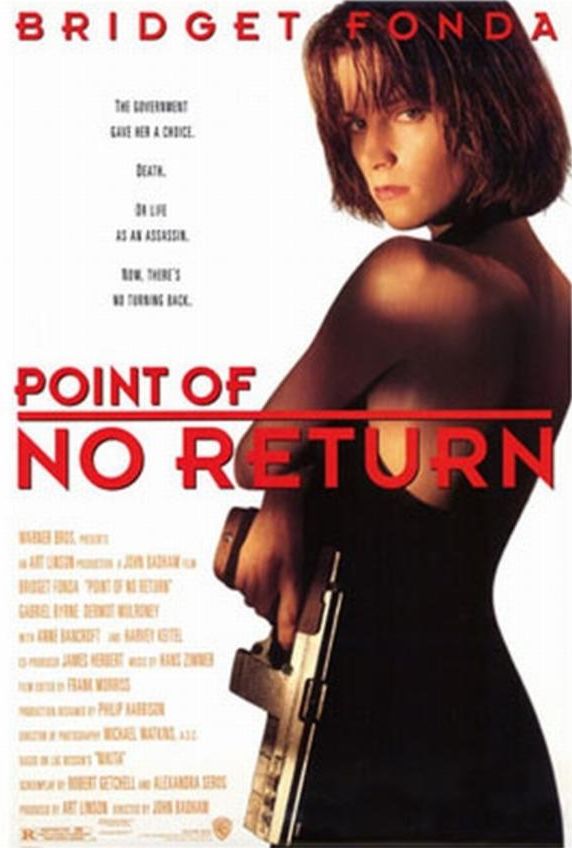 This was called The Assassin in Britain, though a more fitting title would be Remake of No Point. I hadn’t seen this since it originally came out, and it was a quite deliberate choice to watch it first for this article, hoping to escape the sense of deja-vu. Unfortunately, I couldn’t: its strengths are exactly those of Besson’s original, while the weaknesses are largely its own.
This was called The Assassin in Britain, though a more fitting title would be Remake of No Point. I hadn’t seen this since it originally came out, and it was a quite deliberate choice to watch it first for this article, hoping to escape the sense of deja-vu. Unfortunately, I couldn’t: its strengths are exactly those of Besson’s original, while the weaknesses are largely its own.
I can see the purpose of remakes, be they of old movies or foreign ones, when you bring something new to the table. However, it’s entirely understandable that Luc Besson passed on directing the American version, pointing out that he’d already made the movie he wanted. For Venice, read New Orleans. For Nikita, read Nina. For Jeanne Moreau, read Anne Bancroft. About the most significant difference in the storyline is that Fonda listens to Nina Simone.
Balancing the cast off, most are fractionally less effective than their French counterparts, although not so much that you’d notice. There are two exceptions: Dermot Mulroney fails miserably as Maggie’s boyfriend, J.P, to the point where I would have run screaming out the door, and that was after less than two hours in his company. Their relationship fails to convince, and since Badham places it close to the centre of the film, it’s a major flaw.
On the other hand, Harvey Keitel comes perilously close to stealing the whole show as Victor the Cleaner. Jean Reno was good in the original, yet Keitel brings a whole new dimension of menace, and clearly inspired Tarantino for Pulp Fiction. They missed the chance for a spin-off of genuine inventiveness there.
But what little originality actually is brought to the film, largely doesn’t work, in particular a sappy romantic montage between Maggie and J.P. As a director, Badham does a good job with the action sequences – you’d expect nothing less given his track record in the likes of War Games – even when all he’s really doing, is recreating scenes such as the kitchen shoot-out (watch those desserts fly!). There does seem to be rather more Fonda underwear footage too… :-)
Relocating everything to the States is not such a bad thing. While I don’t know about the French government, a school for psychotic murderers is by no means beyond the bounds of possibility – the infamous School of the Americas does much the same for Latin American death squads. And, taken on its own, this is not a bad film. But if you have ever seen the French original, then the American remake becomes entirely superfluous and, as mentioned above, it feels more like you’re watching an English dub, albeit a credibly well-voiced one.
A remake was supposed to be necessary because American audiences wouldn’t watch a subtitled film, but when the box-office spoke, Point took only $30m. The original was a French take on a mostly-American genre, but something is definitely missing when it comes home. Perhaps Badham should have slept with Fonda during production, as Besson did with Parillaud.
Dir: John Badham
Stars: Bridget Fonda, Gabriel Byrne, Dermot Mulroney, Anne Bancroft





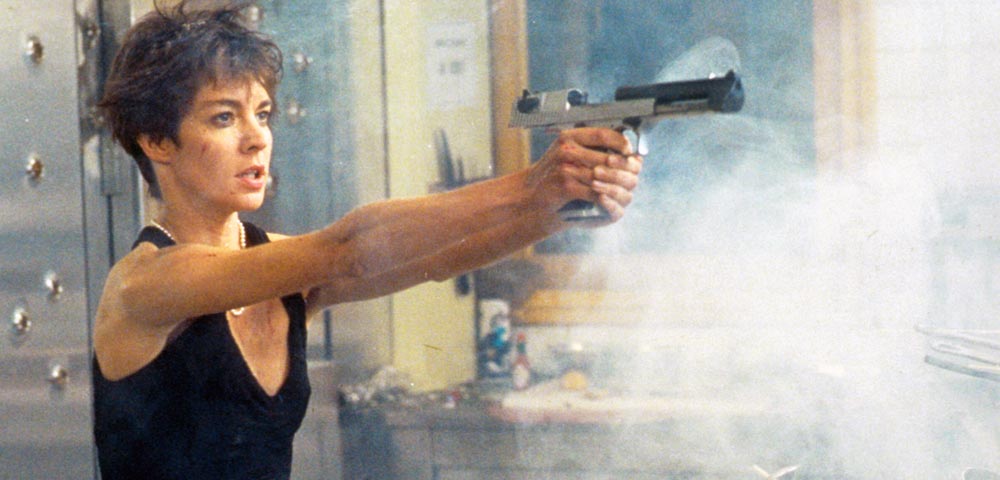
 Luc Besson’s original contains all the necessary elements which would become standard for the field. A criminal is “killed” by the government, only to be resurrected into a new life as an assassin for the authorities. Initially resistant, she eventually embraces her new life, but a romance reminds her of the world she left behind, and becomes a potentially lethal threat to her existence when it starts to interfere with her professional capabilities.
Luc Besson’s original contains all the necessary elements which would become standard for the field. A criminal is “killed” by the government, only to be resurrected into a new life as an assassin for the authorities. Initially resistant, she eventually embraces her new life, but a romance reminds her of the world she left behind, and becomes a potentially lethal threat to her existence when it starts to interfere with her professional capabilities.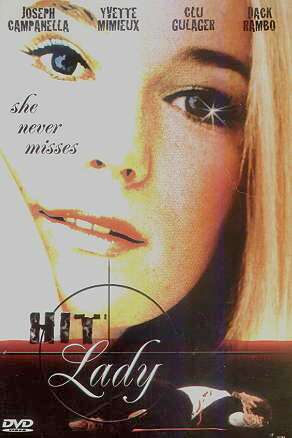 Things the movies teach us, #285: if you are a criminal, do not agree to do “one last job” before retiring, because it never works out that way. I guess assassin for hire Mimieux doesn’t go to the cinema enough, or she’d have known this, rather than letting herself get talked into that OLJ, in this case, killing a union leader. To make it look like an accident, she has to get close to him, only to find herself falling in love with her target – a common hazard of the job, going by how often this happens in films. From here, it’s all downhill, as her identity is compromised, and she has to flee.
Things the movies teach us, #285: if you are a criminal, do not agree to do “one last job” before retiring, because it never works out that way. I guess assassin for hire Mimieux doesn’t go to the cinema enough, or she’d have known this, rather than letting herself get talked into that OLJ, in this case, killing a union leader. To make it look like an accident, she has to get close to him, only to find herself falling in love with her target – a common hazard of the job, going by how often this happens in films. From here, it’s all downhill, as her identity is compromised, and she has to flee.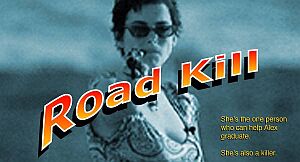 Advertised with the fetching slogan, “Guns don’t kill people – she does”, this is a film about a film, specifically the graduation documentary being made by Alex (Palladino), who has the good fortune to live opposite hitwoman, Blue (Rubin). She just happens to be going on her final job, and agrees to let him and sound-man Lars (Jayne) come along. On the way, however, things come out of the closet about Blue’s background, and Alex finds himself crossing the line between documentarian and instigator.
Advertised with the fetching slogan, “Guns don’t kill people – she does”, this is a film about a film, specifically the graduation documentary being made by Alex (Palladino), who has the good fortune to live opposite hitwoman, Blue (Rubin). She just happens to be going on her final job, and agrees to let him and sound-man Lars (Jayne) come along. On the way, however, things come out of the closet about Blue’s background, and Alex finds himself crossing the line between documentarian and instigator. Rubin, given the chance, does a good job, though it’s only in the final confrontational scene that we get to see what she is really capable of doing. Until then, the job of assassin seems little more interesting than that of a travelling salesman – she drives cross-country, pop-pop, and drives home again. It’s all rather too prosaic, making it hard to see why Alex (or, indeed, the viewer), would want to get so involved. It certainly isn’t the glamour or the excitement.
Rubin, given the chance, does a good job, though it’s only in the final confrontational scene that we get to see what she is really capable of doing. Until then, the job of assassin seems little more interesting than that of a travelling salesman – she drives cross-country, pop-pop, and drives home again. It’s all rather too prosaic, making it hard to see why Alex (or, indeed, the viewer), would want to get so involved. It certainly isn’t the glamour or the excitement. This is an odd little film; heroine Angel (Walden – by some reports now a ski-lift attendant) is an assassin, ordered to take out the leaders of a white slavery ring. After the first killing, she finds solace in the arms of a random guy, and you
This is an odd little film; heroine Angel (Walden – by some reports now a ski-lift attendant) is an assassin, ordered to take out the leaders of a white slavery ring. After the first killing, she finds solace in the arms of a random guy, and you 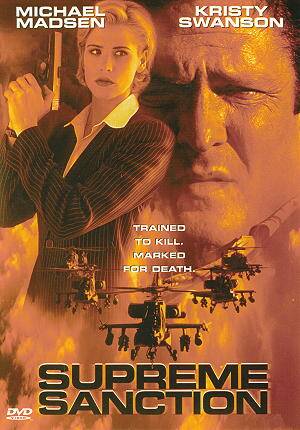 Director Terlesky starred in one of my favourite guilty pleasures, Deathstalker II, but this shows he still has much to learn about directing and, particularly, scripting. There just isn’t enough going on here to sustain attention, with too many scenes taking twice as long as necessary. Swanson plays Jenna, assassin for a government counter-terrorist agency which is now creating incidents in order to get increased funding. She switches sides and protects TV journalist Jordan McNamara (Dukes), whom she has been ordered to kill – her handler Dalton (Madsen) must now take her out.
Director Terlesky starred in one of my favourite guilty pleasures, Deathstalker II, but this shows he still has much to learn about directing and, particularly, scripting. There just isn’t enough going on here to sustain attention, with too many scenes taking twice as long as necessary. Swanson plays Jenna, assassin for a government counter-terrorist agency which is now creating incidents in order to get increased funding. She switches sides and protects TV journalist Jordan McNamara (Dukes), whom she has been ordered to kill – her handler Dalton (Madsen) must now take her out.